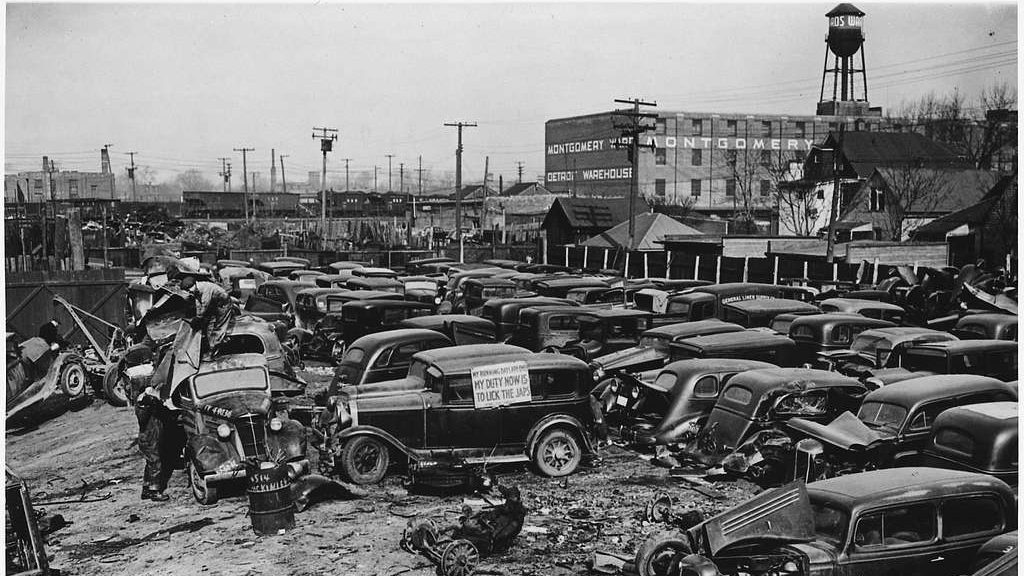Created Equal: Detroit has a scrapyard problem
Created Equal February 20, 2024While these businesses play an integral part of the city’s economy, they pose a number of negative health impacts for residents who live near them.

A Detroit auto scrapyard in the 1940s.
Scrapyards have always been a thing in Detroit. Just drive down any of the city’s major thoroughfares and you can see them.
While these small businesses play an integral part of the Motor City’s economy, they pose a number of negative health impacts for residents who live near them, including higher crime rates and increased noise, water and air pollution.
Approximately 70% of the 1,400 scrapyards and auto repair lots operating in Detroit don’t comply with city codes and regulations, according to a new report from Detroit News reporter Sarah Rahal. City officials insist they’ve made progress in stepping up enforcement, Rahal reports, though some residents say more needs to be done.
Rahal joined Stephen Henderson on Created Equal on Tuesday, along with Laprisha Berry Daniels of Detroiters Working for Environmental Justice, to discuss how the prevalence, regulation and location of these scrapyards connect to the pollution and other environmental damage that Detroiters live with daily.
Subscribe to Created Equal on Apple Podcasts, Spotify, Google Podcasts, NPR.org or wherever you get your podcasts.
Guests:
Sarah Rahal is the Detroit City Hall reporter for The Detroit News. She says there are many aspects of auto-related businesses operating in Detroit that residents disapprove of.
“It’s traffic, it’s noise. There are so many complaints about just the aesthetic,” Rahal said.
Laprisha Berry Daniels is the executive director of Detroiters Working for Environmental Justice. She says the excessive amount of scrapyards and related businesses in the city not only negatively impacts the environment and health of Detroit residents, but also the local economy.
“Having scrap yards as far as the eye can see in certain communities is limiting the access and ability for folks to have businesses that the community would like to have in those areas,” Daniels said. “The other way that this is negatively impacting economic health is lowering property values of homes that are near these types of ugly, nasty businesses.”
Listen to Created Equal with host Stephen Henderson weekdays from 9-10 a.m. ET on 101.9 WDET and streaming on-demand.
Trusted, accurate, up-to-date.
WDET strives to make our journalism accessible to everyone. As a public media institution, we maintain our journalistic integrity through independent support from readers like you. If you value WDET as your source of news, music and conversation, please make a gift today.
